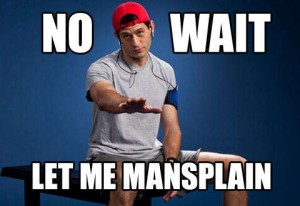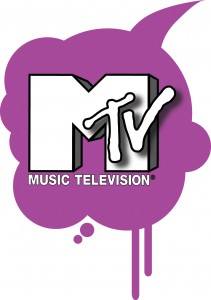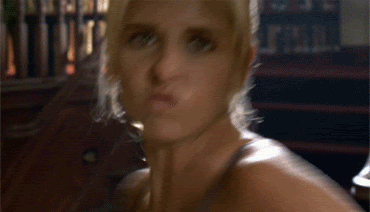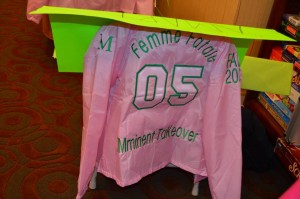Katie is a rising sophomore interning at Sanctuary For Families this summer.
The New York Times recently ran an “Ask A Pollster” column entitled “Women And The I Don’t Know Problem.” The article addresses the tendency of women to choose the “I don’t know” option when asked political opinion questions at a much higher rate than men do. Even if they have some knowledge about the topic, women often choose to respond with “I don’t know,” which can skew poll results.
There are several reasons why this might be the case. For example, female respondents might be lazy. Maybe the “don’t know” response is so tempting because it relieves us of the burden of having to make a tough choice or argue a position. Maybe it allows us to shrink back and be observers rather than active participants. In the case of polling, maybe we know that if we say “I don’t know,” we can hang up the phone and get on with our lives.
But maybe saying “I don’t know” isn’t an act of laziness. Maybe it’s an act of courage. Maybe women, in general, just hold ourselves to higher standards of expertise before claiming an opinion. It’s not that we’re not knowledgeable; we just don’t want to draw conclusions prematurely. We live in a society that is fixated on certainty and seeing things in black and white. Saying “I don’t know” means admitting that not all issues fit so simply into the boxes of right vs. wrong, Republican vs. Democrat, good vs. bad. It means realizing that, no matter how educated we feel, there’s always room to learn.
Certainly, we need to work to create a political arena where women feel free to express our opinions. If “I don’t know” responses come from women’s fear or lack of confidence in our abilities, we should definitely be worried. We have a responsibility to fight back against a society that encourages us to “be seen and not heard.”
However, “I don’t know” doesn’t have to be a sign of weakness. Publically admitting that we need more knowledge or education about something, not out of fear but out of a desire to learn more, takes a great deal of strength. Obviously, no one is qualified to give an opinion on every single topic, and admitting that isn’t necessarily a “problem.” It takes courage to admit our shortcomings and vulnerabilities, and the act of doing so should be lauded, not condemned. Gaps in our knowledge will never be as embarrassing as failure to recognize those gaps. If we were less afraid of saying, “I don’t know,” would more dangerous political decisions be avoided? More rash military plans stopped? More embarrassing gaffes sidestepped?
“Mansplaining” is a term that has recently entered the American lexicon. Mansplaining refers to the act of explaining something in a patronizing manner when the explainer is more knowledgeable about the topic or when the explainee actually knows more. Mansplaining can be politically dangerous, such as when men attempt to explain issues of reproductive health to women who are more knowledgeable than they are. (Does anyone remember that time Todd Akin told us all that rape victims can’t get pregnant? There’s one Congressional career ended, and rightfully so.) Of course, women can also be guilty of mansplaining, but it’s far more common to hear men lecturing us about abortion than it is to hear women preaching about Viagra. This phenomenon represents the extreme of our failure to say “I don’t know.”

One of my goals for this summer is to become more comfortable admitting when I don’t know something and asking for help when I need it, particularly in an academic or professional environment. Saying “I don’t know” is going to be a critical skill for me this summer. I’m one of the youngest Moxies. I’m also very aware that Sanctuary for Families, my internship site, provides services to people whose experiences are very foreign to my own. I’ll be the Development and Communications Intern and, to be honest, I’ve never raised money for a nonprofit before (I sold Girl Scout Cookies in elementary school…does that count?) There’s a lot I have yet to learn. What’s important is that I’m eager to do so.
This summer, I’m challenging myself to admit when I need guidance. I’m challenging myself to remember that I have more questions than answers. Most of all, I’m challenging myself to keep in mind that saying “I don’t know” isn’t necessarily a bad thing, particularly if it’s followed by “yet” or “let me get back to you on that.”
What will this summer hold for me?
I don’t know…yet.






